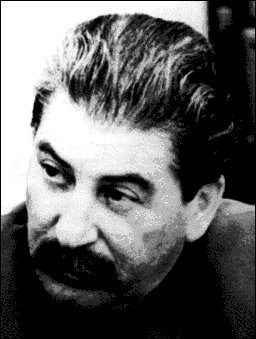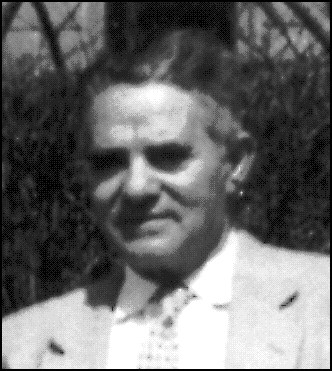R A L P H The Review of Arts, Literature, Philosophy and the Humanities
|
21
Very Best
Titles
1994 - 2003
Very Best
Titles
1994 - 2003
During the course of putting together these many issues of RALPH,
we have come across dozens of books that we feel to be good, if not great.
We have put these at
The 100 Best Books.But there are a few that we think of as
The Best of The Best.
They are listed below in order
of the affection and love we have for them.To access the complete review,
hit on the title of the book."It is Nasdijj's art with words that makes this hang together, lets us live with a child of towering dignity despite daily mortal danger, one who loves, cares for this man who elected, after all, to take him on his Harley, clean his aching, dying body, and finally, when the pain is getting to be too much, when the razors and ice picks are driving the boy to madness --- go out (against his own conscience, and his own belief system) to score some heroin on the street. For you see, in the American health-care system, doctors wouldn't be caught dead giving a twelve-year old pain medication, no matter how much agony was wracking his body." #1
The Boy and The Dog Are Sleeping
Nasdijj
[Ballantine]"It takes us to the heights but then it brings us to the depths. I found my eyes misting during the last few pages. I suspect I was grieving not only the ending of it all --- I didn't want it to end --- but also the tragedy of it all: losing friends to the madness that was, and is, and presumably always will be the madness they call Ireland." #2
At Swim, Two Boys
Jamie O'Neill
[Scribner]
"This is a pretty hum-drum review and I am going to stop it right now because Tumbling After is a gem, and I don't care if you are interested in quadriplegics or chance accidents out of the blue or disability rights or the secret lessons the body has to teach us --- forget your prejudices or even your interests and get this one and settle in with it and shut up." #3
Tumbling After:
Pedaling Like Crazy after Life Goes Downhill
Susan Parker
[Crown]#4
A Woman of Rome
Alberto Moravia
[Steerforth Italia]"There are writers who know their characters and then there are writers who get inside their characters and turn them inside out for you and the writing is so powerful that you think that maybe the author is a worm, a heart worm, one that burrows into the deepest part of woman-soul. And since, as in this case, he's a natural story teller, such a good one --- you don't want it to end; but the plot is so hairy, so fraught with disaster, and you find yourself not wanting these people to get hurt, even the cads; but, then again, they are hell-bent on getting hurt, for it's life; and like life, there is pleasure and greed and love and despair and scheming and stealing and whoring --- all of which can come to no good. And at the end, you say Whew! And you want to turn around and read the whole goddamn thing all over again."
#5 "Words cannot begin to capture Oz-magic. He's all you could want in a novelist: funny, heartbreaking, outrageous. He can sew together a plot that will knock your socks off. He knows hearts, old and young. He shares the good and the bad of love --- old love, new love --- and loves to tell. Most of all, he, or rather he and his translator, are dynamite with words."
The Same Sea
Amos Oz
[Harcourt]#6 "I've read many books pounded out by psychiatrists and psychologists and MSW's with their dry prose and their brilliant insights into the psyche of their clients. This one is from another world. It isn't a let-me-tell-you-wow let-it-all-
Fire of the Five Hearts
Holly A. Smith
[Brunner-Routledge]hang-out psychology clinical case history book. It has too much passion to be just that. And love: Fire of the Five Hearts reeks of passion and love, some we would expect; some that comes out of left field. #7 "All this in the hands of a lesser writer would be a low-class Henry Fielding comedy of errors, but Marías is no half-assed scribbler. The story is deliciously plotted even though we may think we are on a leisurely ramble. Because of the strange characters involved, most of the scenes --- there about ten in number --- are jam-packed with tension."
Tomorrow in the Battle Think on Me
Javier Marías
[New Directions]#8 "It's hard to convey the strangeness of this one. I started it, almost dropped it around page 25 --- but something in the weirdness of it kept me going on, so I got into it, got into it too much, got into it so much that I didn't want to stop --- and once I reached the end, I turned around and read it again."
The Little Girl Who Was Too Fond of Matches
Gaétan Soucy
[Arcade]
#9 "It reminds us (if we need reminding) of the range and variety of evils that afflict human history. And, more surprising, Lourie is able to demonstrate a man's penultimate evil without losing us in either disbelief or fatigue at the sheer awfulness of it all."
The Autobiography of Joseph Stalin
Richard Lourie
[Counterpoint]#10 Memories of Mexico from the 1930s & 1940s. "Jackson comments that when he returned to the United States after a year to the south, We found that the bathtub, unlike those we had known in Mexico, was not filled with old newspapers and magazines and that it was actually hooked up to hot and cold running water. Clearly we were now in a world where common sense, cleanliness, efficiency, and impeccable order reigned supreme ... despite this nice new situation, we were not at all happy. We did not prefer this efficiency. Surely we both had been bewitched."
It's a Long Road to Comondú:
Mexican Adventures Since 1928
Everett Gee Jackson
[Texas A & M Press]
#11 "It's a gentle love tale, and it works because of the tension of reversal. Instead of monster pursuing lady, trying to drag her into the swamp or up some tall building, she pursues him, tries to keep him from being nabbed by the police; in the process, she teaches him about love and the odd ways of humans."
Mrs. Caliban
Rachel Ingalls
[Harvard Common]#12 "Craig Childs is one of those dreadful people who, by age thirty-two, has written five books, won several awards, and spends his life happily working as river guide, naturalist, cartographer, and adventurer. If the writing in his other titles is as rich as this, he will end up taking over the tiny world of naturalist letters."
The Secret Knowledge of Water:
Discovering the Essence of the American Desert
Craig Childs
[Sasquatch Books]
#13 "This one is strange, distorted, rich, and cruel. They compare it to The Tin Drum but that particular book of monsters was flat and myopic compared to the rich symphony that makes up The Ogre. Tournier has created something far more subtle and fascinating."
The Ogre
Michel Tournier
[Johns Hopkins]

#14 "I can think of few travel/
White Waters and Black
Gordon MacCreagh
[University of Chicago]adventure books which excite and please as much as this one. At first, it seems a bit juvenile --- but by some magic, MacCreagh steals our hearts, involves us with him, through the rapids, or while being eaten by piume flies, or negotiating with the various caciques, and at all times, being droll and (one realizes) exceptionally courageous."
#15 "Like Orwell, Kapuscinski misses nothing --- the shabbiness, the stink, the bodies, the nightly radio transmission difficulties with Poland, the beautiful lady commando. The Lisbon TV crew spends an afternoon filming her (and lusting after her) --- causing Kapuscinski to comment: We always create the beauty of women, and that day we created Carlotta's beauty. And then, after they return, they are eating, and they hear that Carlotta has been killed. And the dispassionate writers and newsmen stand up from the table, leave their food behind, and walk into the deserted street. Each of us walked separately, alone; there was nothing to talk about ... It was better for us to reach the hotel that way and disappear from each other's sight."
Another Day of Life
Ryszard Kapuscinski
[Harcourt Brace Jovanovich]
#16 "She writes with a style that is a reviewer's dream --- essays that are as light as angel-food, that are at once profound and funny and lively and insightful. And so I sit down (I have done this quite a few times in the last few weeks) to write something about it and I find myself staring at the screen, or rereading whole chapters, or idly picking at some body part, or being tempted to forget it and play one of those won't-leave-you-alone games packed in my computer's bounteous memory. It puts me in mind of that old wheeze about the butler who, as he was serving the drinks around the table, dropped a piece of ice down the lady's bodice. Really, Madame --- I feel a perfect ass, he whispers to her as he is trying to retrieve it. Forget the compliments, she whispers back, Just get the goddamn ice out."
The Barn at the End of the World:
The Apprenticeship of a Quaker, Buddhist Shepherd
Mary Rose O'Reilley
[Milkweed]
#17 "De Groot has chosen, in this 200 page summary of the events of those five years, to avoid the stylistic twitches of the history-writing drones like Martin Gilbert who go plodding, month-by-month, through the battles until the reader wants to scream and pull out his hair. Rather, he has chosen to start with a whizz-bang introduction, then offer chapters on the Western Front, 1914 - 1917, the Eastern Front, 1914 - 1917, The War at Sea, what he calls "Sideshows," and Imperial Struggles, 1918. It's a sensible and well-paced overview of the war."
The First World War
Gerard J. De Groot
[Palgrave]
#18 "She takes a naturalist's world view, mixes it with geology, history, psychology, humanity, and blends into a lyric whole that is sweet, sharp, and sometimes very poignant. The desert is where she lives --- in Utah, near Four corners --- but it is also where she travels and thinks and wonders about, for example, the United States creating and testing and developing the most secret awful weapons, and doing it in her homeland. Ms. Meloy has written a profound and sad and sometimes very funny account of her in her element, in the Southwest Desert --- not only the hiding place for the sins of America's warlike character, but, too, the grave of those who have gone off the track or gone mad somewhere in its reaches, dying for lack of the most basic stuffs of life --- food, shelter, water."
The Last Cheater's Waltz:
Beauty and Violence in the Desert Southwest
Ellen Meloy
[Arizona]#19 "Elsa Morante somewhere, somehow, picked up a magic style, one that comes so naturally and so effortlessly and so sweetly that we are swept along on the wings of her story. It's a cosmic writing --- a writing that causes the reader to be awash with the day-to-day of a people that we would never otherwise have a chance to meet. These are characters that, over the course of a few pages, begin to move and act so naturally that we think that a camera has been set up for us in San Lorenzo, a camera with a special sensing device so we can hear the conversations, feel their doubts, get into their minds, participate in their ecstasies and their terrors."
History: A Novel
Elsa Morante
[Steerforth Italia]
#20 "Soros is the kind of person that we would want to hang out with just because he has that wry irony and let-nothing-daunt-me attitude that we'd need if we were trying to survive in Budapest in 1944. Further, there is a powerful implied kindness in all his works. He doesn't say, I'm a kind person. He doesn't have to. Despite his living in the midst of such human bestiality, he remains a steadfast humanitarian. He comes off as one who is simply not built to see the world in terms of enemies and friends."
Masquerade
Tivadar Soros
[Arcade Publishing]
#21 "All through all of this, while writing about brutality and trying to convince us (and himself) that there comes a time when it doesn't touch you, he is showing us a man, he, Loyd, our Everyman on the spot, immersed in death and dying and so many insults to the soul that it makes one want to surrender one's membership in The Humanity Club and move to another planet and be alone with the stars, out of the orbit of this world."
My War Gone by, I Miss it So
Anthony Loyd
[Penguin]

